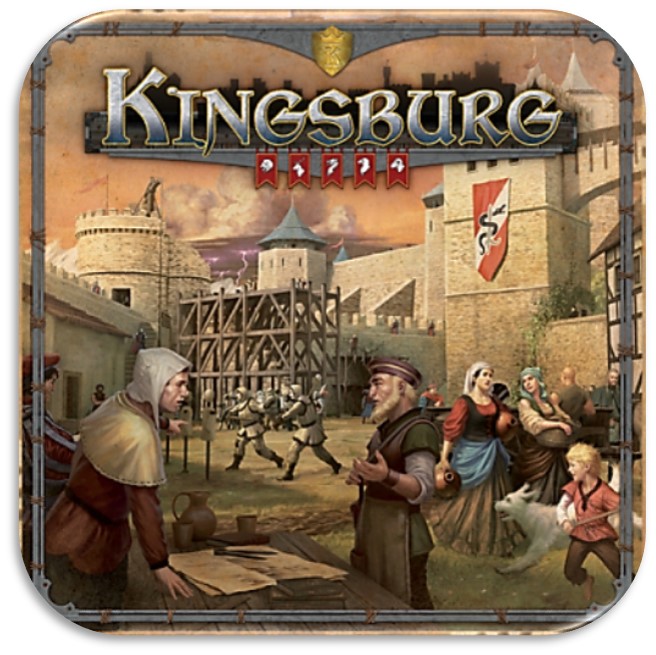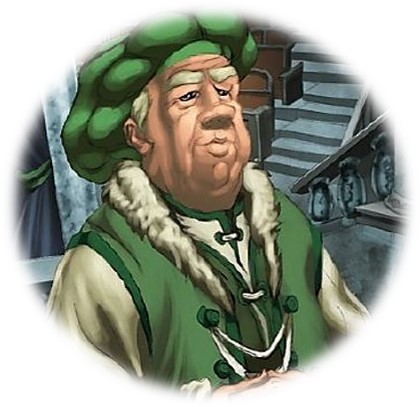 Kingsburg is a worker placement game, where players become lords of a kingdom, seeking to build their section in the best way to gain the appreciation of the king. You will be choosing what buildings to invest in, each bringing with them some long term benefits to you. The game is played over five year turns, each consisting of three production phases, one for spring, summer and autumn before winter approaches and you must be ready to defend against enemies.
Kingsburg is a worker placement game, where players become lords of a kingdom, seeking to build their section in the best way to gain the appreciation of the king. You will be choosing what buildings to invest in, each bringing with them some long term benefits to you. The game is played over five year turns, each consisting of three production phases, one for spring, summer and autumn before winter approaches and you must be ready to defend against enemies.
In this game the dice are your workers, you will roll three each turn, using combinations of the dice totals to seek the the various members of the kings council, earning rewards in the form of resources, such as wood, stone or gold which you can then use to build up the area of your kingdom. Buildings have a level assigned to them, up to four and are split into a series, so you must build the level one of the series before you can get the level two, and so on. This means at some stage you may decide to specialise in one of these series trees to get to one of the better buildings.
The winter attack is an important game element, always adding a layer of doubt as you will usually not know, unless you spend time scouting, what enemy is coming and how strong it is. As such building up your defences remains important as you lose points for a defence breach, but also you do not want to waste too much resource doing so. The enemies largely get stronger each year and it is a really neat mechanism, which helps lift the interest in the gameplay.
Kingsburg remains one of my favourite worker placement games, and this may be for the very reason other players may not like it as much, the dice rolling. I really like that you have an element of luck or doubt each turn and that you have to make the best of what you roll. For a pure seasoned strategist, this may well not bring the same fun factor, but for a family game it levels the playing field a little, allowing anyone to play and enjoy the game regardless of how new they are to it. Everything is pretty intuitive, you have choices of how to use your dice, but the options are not overly complex and can be quickly absorbed. It majors on the fun factor of rolling dice and watching each other succeed or fail with dispair or glee accordingly. It can play a little long if you allow players to dwell too long on their turns, but if overall you do not take your games too seriously, then this is a star performer.
The second edition of the game rolled various expansion options into the core box, which was a nice idea. Expansions are modular in design so that you can add as many or as few of them as you like, only using the ones you prefer. Some of the game impacts include, adding a series of guards you can select to help you defend your kingdom, events to ensure the game is throwing you a curve ball here and there, new tiles bringing in new building trees, and new council reward banners to change what is on offer when you visit them, and a player special and unique ability which will make you feel different to your opponents, and in some way and may help you focus on your strategy.
……………………………………………………………………………………………………………………….
Expansions
Whilst there was an expansions for the original version called forge a retreat, the revised edition is now self contained and includes all of the new content introduced.
